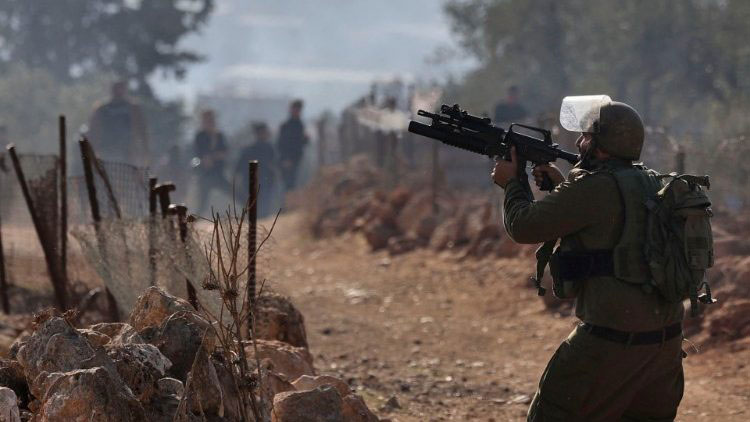Commenting on the latest political and social developments in Israel and the Palestinian Territories, after the recent general election in Israel, the Assembly of the Catholic Ordinaries of the Holy Land (ACOHL) expresses concerns about the political context in which the new Israeli coalition government is being formed and reiterates its call for dialogue and peace.
As Israeli Prime Minister-designate Benjamin Netanyahu moves towards the formation of a new coalition government following the November 1 general election, the Assembly of the Catholic Ordinaries of the Holy Land (ACOHL) has expressed hope that the new leadership will bring “political stability”, while voicing its concerns over the “gradual deterioration of the general social and political” situation in the region.
Upsurge of violence
Israel’s fifth election in four years confirmed Netanyahu’s return to power with the support of ultra-nationalist and far-right parties.
Their victory comes against the backdrop of an upsurge of violence in Israel and the Palestinian territories, with Israeli forces making near-daily raids in recent months, many of them deadly, following a series of lethal attacks on Israelis. Clashes have further escalated over the last weeks and at least 150 Palestinians and 26 Israelis have been killed across Israel and the West Bank.
Divisive statements lay the groundwork for further violence
Commenting in a statement the latest developments, the Holy Land Catholic religious leaders say they are worried about the political context in which the new government is being formed. While hoping that the new leadership will bring political stability, they remark that “certain statements” made by members of the coalition are “very divisive toward the Arab or otherwise non-Jewish community”. Among them is Itamar Ben-Gvi, leader of the Otzma Yehudit (‘Jewish Power’) faction, known for his anti-Arab rhetoric and often accused of deliberately fuelling the conflict with the Palestinians.
Such statements “are contrary to the spirit of peaceful and constructive coexistence among the various communities that make up our society,” and “lay the groundwork for further violence”, the statement said.
The Assenbly therefore expresses hope that under the new government , the attention of the country’s authorities will be returned “with fairness to the diverse communities that make up Israeli society, avoiding discrimination or preference”.
Lack of security within the Arab community in Israel
In addition, the Catholic leaders say they are worried about the violence and lack of security within the Arab community in Israel, the legal limbo many foreign workers and asylum-seekers who are members of the Church find themselves in, and the weakened educational system, both in the Jewish and Arab environments. In this regard they lament the recent cuts in government funding of Christian schools which are jeopardizing their very survival.
The ACOHL then focuses on the situation in Palestine and the Occupied Territories noting that this year has seen the “highest Palestinian death toll in more than 20 years”, and that “the living area available to the Palestinian population continues to shrink”, due to the sustained growth of Israeli settlements. “We are also witnessing attacks to the Jewish population,” the statement adds, while criticizing the recent arrest and detention of several Palestinian minors, especially in East Jerusalem.
Absence of a real peace process based on international law
According to the Catholic leaders, the absence of a real peace process based on international law will lead to more suffering and violence as a consequence of “deep distrust and perhaps even hatred that is taking root in the hearts of the two populations: Israeli and Palestinians”.
The Assembly therefore calls especially on religious and political leaders to “foster mutual respect and not division or sentiments of hatred.”
Return of pilgrims to the Holy Land
On a positive note, the ACOHL welcomes the return of the pilgrims to the Holy Land, noting that it “brings not only material prosperity but also more awareness and attention to the Holy Land and makes us feel that we are not forgotten”.
It also acknowleges the positive work of groups and individuals working toward “friendship and solidarity.”
“Their love gives us hope and belief that there are … those who still want to react to the ever-strong temptations of closure and refusal to dialogue and encounter with initiatives of encounter and solidarity open to all,” the statement says.
By Lisa Zengarini | vaticannews






